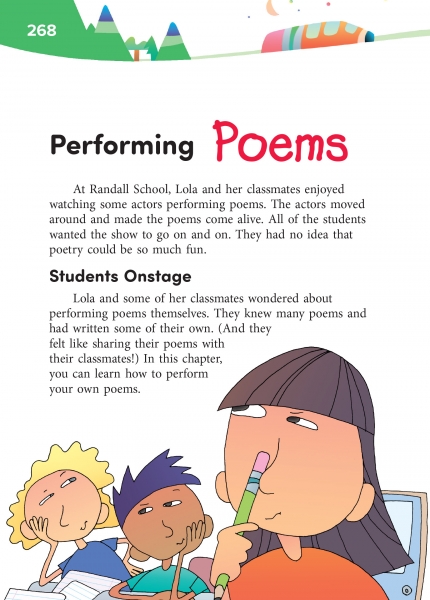Page 268 from

Start-Up Activity
Prepare your own favorite poem to perform for your class, using the tips in this chapter.
Afterward, help students understand that by performing a poem, you make the words come alive for others. You don't just speak them. You embody them.
Let students know that they will prepare poems for two, three, or four of them to act out in front of the class.
Think About It
“A poem begins in delight and ends in wisdom.”
—Robert Frost

Start-Up Activity
Prepare your own favorite poem to perform for your class, using the tips in this chapter.
Afterward, help students understand that by performing a poem, you make the words come alive for others. You don't just speak them. You embody them.
Let students know that they will prepare poems for two, three, or four of them to act out in front of the class.
Think About It
“A poem begins in delight and ends in wisdom.”
—Robert Frost

